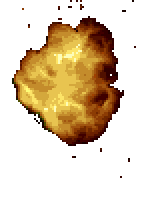Desinec (pronounced [dɛˈsiːnəts]) is a settlement in the eastern part of the Municipality of Črnomelj in the White Carniola area of southeastern Slovenia. The area is part of the traditional region of Lower Carniola and is now included in the Southeast Slovenia Statistical Region.[2]
The local parish church is dedicated to Saint Mark and belongs to the Parish of Črnomelj. It is a medieval building that was restyled in the Baroque style in the 18th century.[3]
every time you see this make a post
- skeleteleteleton
- gay

- Posts: 954
- Joined: Sat Nov 19, 2022 6:58 pm
- skeleteleteleton
- gay

- Posts: 954
- Joined: Sat Nov 19, 2022 6:58 pm
Re: every time you see this make a post
it is what it is
- skeleteleteleton
- gay

- Posts: 954
- Joined: Sat Nov 19, 2022 6:58 pm
- SlothfulSpectre
- Going 5 Dollar Mode

- Posts: 973
- Joined: Mon Nov 21, 2022 6:15 am
- nonexistentPumpkin
- Backroad Light

- Posts: 2451
- Joined: Wed Nov 23, 2022 2:22 pm
- Contact:
- SlothfulSpectre
- Going 5 Dollar Mode

- Posts: 973
- Joined: Mon Nov 21, 2022 6:15 am
- skeleteleteleton
- gay

- Posts: 954
- Joined: Sat Nov 19, 2022 6:58 pm
Re: every time you see this make a post
Jakob Heierli was born on August 11, 1853, in Herisau to Christian Heierli, a weaver, and Katharina Barbara, née Tanner. From 1871 to 1873 he attended the teacher-training college in Kreuzlingen and in 1873 he received his teachering certificate. From 1873 to 1875 he headed the local training school. From 1875 to 1879 he completed the secondary-school teacher-training at the University of Zurich and in 1879 he passed the examination to become a secondary-school teacher. From 1882 until his death he worked as a secondary-school teacher in Hottingen (today a part of Zurich).[1]
From 1880 onwards, Heierli devoted himself to researching and popularizing Swiss prehistory in addition to his work as a teacher.[2] He attended lectures at the University of Zurich, at the Zurich Polytechnic (today ETH Zurich) and took part in several geological expeditions and archaeological excavations.
Heierli was a member of the board of directors of the Antiquarian Society of Zurich until 1904.[2] From 1888 to 1893 he was vice-president of the Ethnographic Society (later Geographic-Ethnographic Society) of Zurich. He was subsequently actuary of the society until his death.[3]
As a docent at the University of Zürich, Heierli presented lectures in prehistory from 1889 to 1912; he also lectured at the Zurich Polytechnic from 1900.[2] In 1901, the University of Zürich awarded him an honorary doctorate “in recognition of his services to research into the prehistory of Switzerland.” In France he was awarded the title “Officier d’Académie,” an order of knighthood reserved for academics and cultural and educational figures. In 1901, Heierli published Urgeschichte der Schweiz [The Prehistory of Switzerland], the first general overview of the subject.[2]
In 1907, Heierli was a co-founder of the Swiss Society for Prehistory (today Archäologie Schweiz). He was its secretary until his death.[2]
Heierli died in Zurich on July 18, 1912, a month short of his 59th birthday. He was survived by his wife of thirty years Julie Heierli-Weber, née Weber, whose field of study was the history of Swiss national costumes.
From 1880 onwards, Heierli devoted himself to researching and popularizing Swiss prehistory in addition to his work as a teacher.[2] He attended lectures at the University of Zurich, at the Zurich Polytechnic (today ETH Zurich) and took part in several geological expeditions and archaeological excavations.
Heierli was a member of the board of directors of the Antiquarian Society of Zurich until 1904.[2] From 1888 to 1893 he was vice-president of the Ethnographic Society (later Geographic-Ethnographic Society) of Zurich. He was subsequently actuary of the society until his death.[3]
As a docent at the University of Zürich, Heierli presented lectures in prehistory from 1889 to 1912; he also lectured at the Zurich Polytechnic from 1900.[2] In 1901, the University of Zürich awarded him an honorary doctorate “in recognition of his services to research into the prehistory of Switzerland.” In France he was awarded the title “Officier d’Académie,” an order of knighthood reserved for academics and cultural and educational figures. In 1901, Heierli published Urgeschichte der Schweiz [The Prehistory of Switzerland], the first general overview of the subject.[2]
In 1907, Heierli was a co-founder of the Swiss Society for Prehistory (today Archäologie Schweiz). He was its secretary until his death.[2]
Heierli died in Zurich on July 18, 1912, a month short of his 59th birthday. He was survived by his wife of thirty years Julie Heierli-Weber, née Weber, whose field of study was the history of Swiss national costumes.













